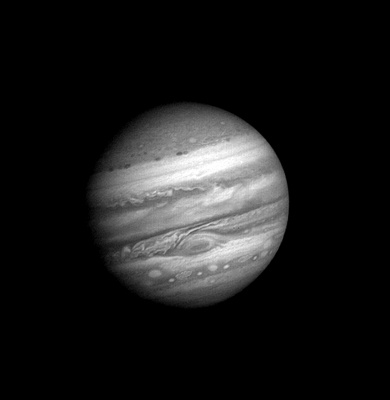 Former President Bill Clinton and North Korea's leader Kim Jong-il pose for a picture in Pyongyang in this photo released by North Korean official news agency KCNA Aug 4. Talk about stiff...
Former President Bill Clinton and North Korea's leader Kim Jong-il pose for a picture in Pyongyang in this photo released by North Korean official news agency KCNA Aug 4. Talk about stiff...SEOUL (Reuters) - North Korea released two jailed American journalists on Tuesday after a visit from former U.S. President Bill Clinton in the highest-level U.S. contact with Pyongyang since Clinton was president nearly a decade ago.
UPDATE: A spokesperson for former President Bill Clinton on Tuesday confirmed that he and the two U.S. journalists who have been freed in North Korea, have left the country. "President Clinton has safely left North Korea with Laura Ling and Euna Lee. They are en route to Los Angeles where Laura and Euna will be reunited with their families," Matt McKenna said in a statement. They are scheduled to arrive in Los Angeles Wednesday morning.
North Korea's KCNA news agency said North Korean leader Kim Jong-il had issued a "special pardon" to the two journalists, Euna Lee and Laura Ling of U.S. media outlet Current TV, which was co-founded by Clinton's vice president, Al Gore.
The two journalists were arrested on the North Korea-China border in March and accused of illegal entry. A North Korean court sentenced both of them last month to 12 years of hard labor for what it called grave crimes. Photos of journalists Laura Ling (left) and Euna Lee displayed during a public vigil in San Francisco, June 24.
Photos of journalists Laura Ling (left) and Euna Lee displayed during a public vigil in San Francisco, June 24.
There were immediate questions about what Clinton had discussed with Kim beyond the fate of the two reporters during a visit that gave Kim what he craved -- direct U.S. attention and a visit from a highly placed emissary.
The news agency insisted that Clinton "courteously conveyed a verbal message of U.S. President Obama expressing profound thanks for this and reflecting views on ways of improving the relations between the two countries."
The White House had denied that Clinton carried any sort of message from Obama, but Obama officials otherwise remained silent while awaiting the diplomatic negotiations to unfold.
Clinton, husband of U.S. Secretary of State Hillary Clinton, was the highest-level American to visit the reclusive communist state since his secretary of state, Madeleine Albright, went there in 2000.
He was greeted warmly on his arrival and had what KCNA described as an "exhaustive conversation" over dinner with Kim and his top aides.
 Former President Bill Clinton is welcomed with flowers upon his arrival at Sunan airport in Pyongyang.
Former President Bill Clinton is welcomed with flowers upon his arrival at Sunan airport in Pyongyang.
The North Koreans immediately sought to put their stamp on what they felt had happened during Clinton's visit.
"Clinton expressed words of sincere apology to Kim Jong Il for the hostile acts committed by the two American journalists against the DPRK after illegally intruding into it. Clinton courteously conveyed to Kim Jong Il an earnest request of the U.S. government to leniently pardon them and send them back home from a humanitarian point of view," KCNA said.
Obama adviser David Axelrod had told MSNBC that Clinton was on a "private humanitarian mission" and that "I don't think it's related to other issues."
KCNA attempted to portray the visit in terms of what was possible in the future, saying Clinton's visit would "contribute to deepening the understanding between the DPRK and the U.S. and building the bilateral confidence."
Side Benefit?
Clinton's visit could have a side benefit of improving the atmosphere between the United States and North Korea that could restart talks on Pyongyang's nuclear weapons.
North Korea's chief nuclear negotiator, Kim Kye-gwan, was among those greeting Clinton, whose administration was believed to have been close to agreement with the North before he turned over power to George W. Bush in 2001.Many analysts predicted Pyongyang would use the journalists as leverage to wring concessions from Washington, which sought to place U.N. sanctions on the North for a May nuclear test.
Clinton's trip followed months of military provocations by the impoverished North, which has turned its back on negotiations with regional powers, including the United States and China, to convince it to give up ambitions to build an atomic arsenal.
In Washington, Republican Senator Lindsey Graham said it was not clear whether Clinton had been authorized to discuss policy issues.
"It would be nice if it's the foundation for a better relationship," Graham, a member of the Senate Armed Services Committee, told NBC's "Today Show."
 People watch a news program at a railway station in Seoul, reporting former President Bill Clinton's visit to North Korea Aug 4.
People watch a news program at a railway station in Seoul, reporting former President Bill Clinton's visit to North Korea Aug 4.
Yun Duk-min of the Institute of Foreign Affairs and National Security in Seoul said the visit held out the possibility of "a dramatic turnaround by North Korea that could lead to a new phase of negotiations."
Wrong Signals
It was the second time a former U.S. president went to North Korea to try to defuse a crisis. Former President Jimmy Carter flew there in 1994 when tensions were running high, again over the North's nuclear weapons program.
Carter helped broker a deal at that time in which Pyongyang suspended construction of a 50-megawatt plutonium reactor in exchange for heating oil and other energy aid.
One analyst said Clinton's visit was rewarding North Korea's "bad behavior."
Clinton's arrival coincided with mounting speculation over succession in Asia's only communist dynasty. Several reports suggest an increasingly frail-looking Kim Jong-il, 67, has settled on his third son to take over.
"It's just what they (North Korea's leaders) need," said B.R. Myers, an expert on the North's state ideology at the South's Dongseo University.
(Additional reporting by Yoo Choonsik in Seoul, Lucy Hornby in Beijing, David Morgan and Ross Colvin in Washington; Writing by Steve Holland; Editing by Patricia Wilson and Peter Cooney)
Source: Reuters, BNO







No comments:
Post a Comment